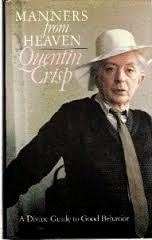White, E. B. Here Is New York. New York: Little Bookroom. 1949. Print.
On any person who desires such queer prizes, New York will bestow the gift of loneliness and the gift of privacy....for the residents of Manhattan are to a large extent strangers who have pulled up stakes somewhere and come to town, seeking sanctuary or fulfillment or some greater or lesser grail. The capacity to make such dubious gifts is a mysterious quality of New York.
Description:
Description:
White is a magnificent writer, a quiet observer who relates to us lucky readers his thoughts about the sights, sounds, people, and even the air of New York. And rather than me trying to convince you of value of this short book/essay (only 56 pages), I'll just present some quotes from White and let you judge for yourself.
- New York blends the gift of privacy with the excitement of participation; and better than most dense communities it succeeds in insulating the individual (if he wants it, and almost everybody wants or needs it) against all enormous and violent and wonderful events that are taking place every minute.
- I heard the Queen Mary blow one midnight, though, and the sound carried the whole history of departure and longing and loss.
- Many people who have no real independence of spirit depend on the city's tremendous variety and sources of excitement for spiritual sustenance and maintenance of morale.
- Not many [commuters] have ever spent a drowsy afternoon in the great rustling oaken silence of the reading room of the Public Library, with the book elevator (like an old water wheel) spewing out books onto trays.
- The city makes up for its hazards and its deficiencies by supplying its citizens with massive doses of a supplementary vitamin -- the sense of belonging to something unique, cosmopolitan, mighty and unparalleled.
- On a summer night [the Bowery] drunks sleep in the open. The sidewalk is a free bed, and there are no lice. Pedestrians step along and over and around the still forms as though walking on a battlefield among the dead.
- New York is not a capital city -- it is not a national capital or a state capital. But it is by way of becoming the capital of the world.
The city is uncomfortable and inconvenient, but New Yorkers temperamentally do not crave comfort and convenience -- if they did they would live elsewhere
[If this book interests you, be sure to check out:]
The thoughts of the author as he wanders the streets of New York City in the late night hours, including the people he meets, the restaurants he visits, and the quiet, dark sights he enjoys.
Happy reading.
Fred
Click here to browse over 435 more book recommendations by subject or title
(and read the introduction to The First Sentence Reader).




